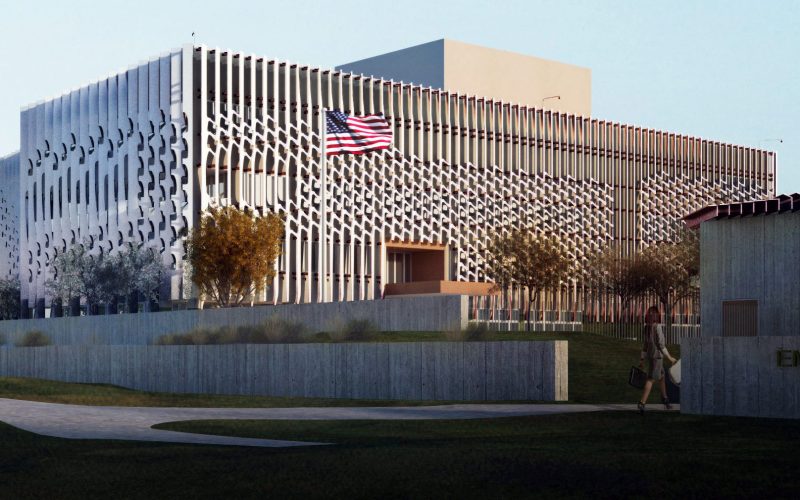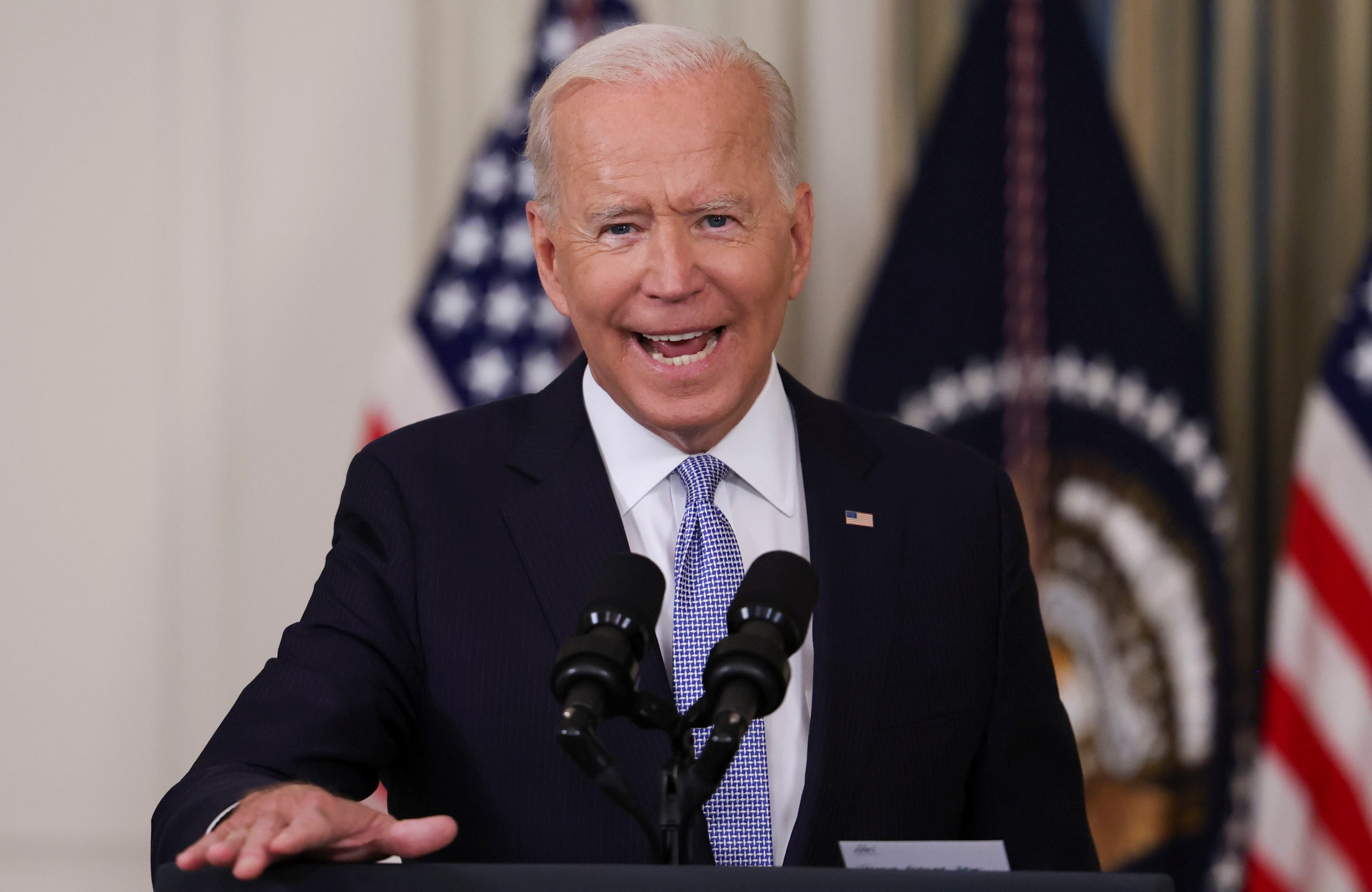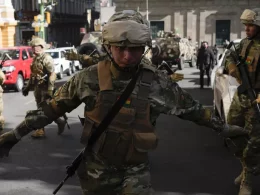The sanctity of diplomatic missions is a cornerstone of international relations. Embassies serve as a nation’s sovereign territory within another country, offering a safe haven for diplomats and those seeking asylum. In April 2019, this principle was shattered when Ecuadorian authorities breached the Mexican embassy in Quito, sparking a major diplomatic crisis that severed ties between the two nations.
A Former Vice President Seeks Refuge
The central figure in this conflict was Jorge Glas, a former Ecuadorian vice president. In 2017, Glas faced corruption charges stemming from a massive bribery scandal involving the Brazilian construction company Odebrecht. Following his conviction, Glas sought asylum at the Mexican embassy in December 2018.
Mexico, under President Andrés Manuel López Obrador, had a history of granting asylum to individuals facing persecution. However, the legitimacy of Glas’s asylum claim was highly debatable. Corruption charges, unlike political persecution, typically disqualify individuals from asylum.
Ecuadorian Raid Ignites Tensions
Despite the ambiguity surrounding Glas’s asylum request, the situation escalated dramatically on April 2nd, 2019. Ecuadorian police, acting on orders from President Lenín Moreno, stormed the Mexican embassy to apprehend Glas. This unprecedented action violated the Vienna Convention on Diplomatic Relations, an international treaty guaranteeing the inviolability of embassies and their personnel.
The Mexican government reacted swiftly and with outrage. President López Obrador condemned the raid as a “blatant violation of international law” and a “serious attack on Mexico’s national sovereignty.” He immediately announced the severing of diplomatic ties with Ecuador, the expulsion of all Ecuadorian diplomats from Mexico, and the withdrawal of Mexican personnel from Ecuador.
International Condemnation and Efforts at Mediation
The international community overwhelmingly sided with Mexico. The Organization of American States (OAS) and the United Nations expressed concern about the violation of diplomatic protocols and urged both parties to engage in dialogue. Regional powers like Argentina and Brazil also condemned the raid and called for a peaceful resolution.
Several attempts were made to mediate the crisis. The Uruguayan government offered itself as a neutral ground for talks, and the Vatican expressed a willingness to facilitate communication. However, initial attempts to bridge the diplomatic chasm proved unsuccessful.
Mexico’s Stance: Upholding International Law

Mexico’s position remained firm throughout the crisis. The López Obrador administration emphasized the principle of reciprocity in international relations. By violating the sanctity of the Mexican embassy, Ecuador had set a dangerous precedent that could have repercussions for all diplomatic missions. Mexico also expressed concerns about the political climate in Ecuador under President Moreno, who had taken a more conservative stance compared to his predecessor, Rafael Correa, with whom Glas was politically aligned. Mexico suspected Glas’s arrest was politically motivated.
Ecuador’s Justification: Corruption and Due Process
Ecuador’s government defended its actions, arguing that Glas was not a legitimate asylum seeker and that his presence in the embassy obstructed the course of justice. President Moreno emphasized his commitment to fighting corruption and asserted that Ecuador had followed due process in pursuing Glas’s case. Ecuador also downplayed the significance of the embassy breach, claiming the action was taken within the confines of its own territory. However, this argument held little weight in the context of international law.
The Path to Normalization: A Long and Winding Road
The diplomatic crisis between Mexico and Ecuador remained unresolved for several months. The two nations remained locked in a stalemate, with neither side willing to back down from its initial position.
However, over time, the intensity of the crisis gradually subsided. Back-channel diplomacy and international pressure eventually paved the way for a more conciliatory approach. Low-level diplomatic contacts were re-established, and a gradual normalization process began.
The complete restoration of diplomatic relations took nearly two years. It wasn’t until March 2021 that both nations formally re-established embassies and exchanged ambassadors.
The Lasting Impact of the Crisis
The Mexico-Ecuador diplomatic crisis serves as a stark reminder of the importance of respecting international law and diplomatic norms. The violation of the Mexican embassy highlighted the fragility of international cooperation and the potential for misunderstandings to escalate into major crises.
The long road to normalization underscored the need for open communication and a willingness to find common ground. While the specific details of the Glas case remain a point of contention, the broader issue of upholding diplomatic protocols has become a central lesson learned from this event.
Here are some key takeaways from this event:
The Importance of Upholding International Law: The violation of the Vienna Convention on Diplomatic Relations by Ecuador sent a dangerous message. Adherence to established international protocols is essential for maintaining a stable and predictable global order.
The Need for Open Communication: The lack of clear communication and dialogue between Mexico and Ecuador initially fueled the crisis. Open channels of communication are crucial for resolving disagreements and preventing misunderstandings.
Finding Common Ground: Despite initial intransigence, both nations eventually recognized the need for compromise and a return to normalcy. The ability to find common ground through diplomacy is essential for resolving international disputes.
The Mexico-Ecuador crisis serves as a reminder of the delicate balance between national interests and international obligations. While countries have the right to pursue their agendas, the sanctity of diplomatic norms must be upheld.
Conclusion:
The diplomatic crisis between Mexico and Ecuador ultimately ended with a return to normalcy, albeit after a protracted period of tension. While embassies have reopened and ambassadors have been exchanged, the scars of the 2019 incident remain. The case of Jorge Glas, the former vice president at the center of the storm, continues to be a point of contention. He was eventually extradited to Peru to face corruption charges in a separate case. The Mexico-Ecuador crisis serves as a cautionary tale for the international community. It highlights the fragility of diplomatic norms and the potential for misunderstandings to escalate into major crises.










